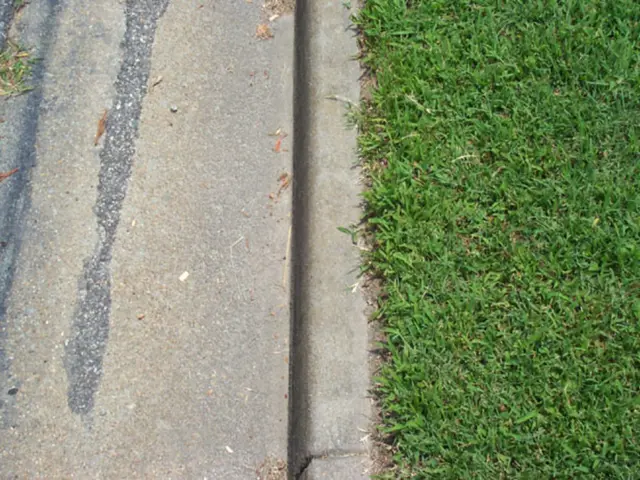Intense Rosacea Outbreak: Triggers, Signs, and Remedies
Let's Dish on Rosacea Fulminans:
Rosacea Fulminans, a beastly form of rosacea, is a rare, swiftly developing skin condition that predominantly ambushes the central part of the face - from the chin to the nose. Often labeled as pyoderma faciale, this condition manifests as flushed, swollen, and painful nodules and pimples that can join forces. Unlike ordinary rosacea or acne, these symptoms are more severe and suddenly surface.
Rosacea Fulminans chiefly plagues women in their childbearing years. However, its origins remain a mystery.
Nailing its treatment might involve corticosteroids, isotretinoin (Accutane), or even managing stress and tweaking diets. Some people might find comfort in these lifestyle modifications.
The Hidden Causes of Rosacea Fulminans:
Rosacea Fulminans' root causes are shrouded in secrecy, but a 2020 study hints at associations with issues such as inflammatory bowel diseases and pregnancies. It's also more likely to strike individuals with some background in rosacea.
Stress, hormonal shifts, and certain medications might be triggers for Rosacea Fulminans. However, a 2021 review suggests that specific dietary aspects may ignite or worsen rosacea symptoms; though it should be noted that this doesn't apply specifically to Rosacea Fulminans.
Potential dietary culprits include:
- Spicy cuisines
- Alcoholic beverages
- Foods containing cinnamaldehyde, such as chocolate, tomatoes, and citrus fruits
- Historically aged foods like cheese and processed meats
- Wine and other histamine-rich foods and drinks
- Hot beverages
Keep in mind that dietary triggers may vary greatly from one person to another, so healthcare professionals typically refrain from dishing out universal dietary recommendations for rosacea sufferers.
Rosacea Fulminans: A Face Full of Symptoms:
The symptoms of Rosacea Fulminans primarily assault the forehead, nose, cheeks, and chin. They can include:
- Sudden, severe skin color changes, such as redness
- Painful pustules, papules, and nodules that merge
- Swelling and inflammation
- Flushing and blushing
- Stinging and burning sensations
Some people may experience eye-related symptoms like dry, burning eyes, itchiness, and light sensitivity. General symptoms like fever and fatigue are quite uncommon.
Taming Rosacea Fulminans: Treatment Approaches:
Treatment for Rosacea Fulminans may encompass oral isotretinoin (a prescription acne medication) and corticosteroids. In a 2016 case study, antibiotics combined with corticosteroids and lifestyle changes facilitated symptom resolution for one patient.
Since factors like stress and diet may aggravate rosacea, healthcare providers might suggest implementing lifestyle changes such as:
- Managing stress by practicing mindfulness meditation, deep breathing exercises, regular exercise, or journaling
- Making dietary adjustments, such as cutting down on alcohol
- Adopting gentle skincare practices for the face
Fusing these practices with medical treatments could lead to improved symptom management and an overall improvement in the quality of life for those coping with this condition.
When to Contact a Doc:
If you're experiencing symptoms that overshoot typical rosacea or acne, such as big, tender nodules, abscesses, or substantial facial discomfort, it's time to consult with a dermatologist or healthcare provider. If your symptoms creep up suddenly or persist even after trying over-the-counter meds or therapies, reach out to a pro.
If you notice any eye irritation or inflammation, or systemic symptoms like fever, act promptly. A prompt diagnosis and early treatment can help manage symptoms better and minimize the risk of complications associated with Rosacea Fulminans, like scarring and infections.
Timely medical attention can also alleviate emotional distress and enhance the overall quality of life for those dealing with this condition. Don't hesitate - reach out to a dermatologist or healthcare provider for personalized care and comprehensive strategies tailored to your unique needs.
- The 2020 study suggests possible associations between Rosacea Fulminans and inflammatory bowel diseases, pregnancies, and a history of rosacea.
- Specific dietary aspects may ignite or worsen rosacea symptoms, with potential culprits being spicy cuisines, alcoholic beverages, cinnamaldehyde-containing foods, aged foods, histamine-rich foods and drinks, hot beverages, but these triggers can vary among individuals.
- Healthcare providers may recommend implementing lifestyle changes such as managing stress, making dietary adjustments, and adopting gentle skincare practices to help with Rosacea Fulminans management.
- If symptoms are severe, persist, or are not responded to by over-the-counter treatments, it's crucial to consult a dermatologist or healthcare provider for proper diagnosis and personalized treatment plans.








